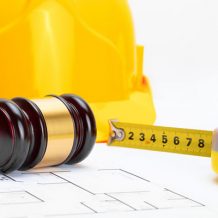How to Effectively Prepare for Construction Delay Claims

Article written by Buddah Lounge, a blog about various topics
Summary: Delays are inevitable in this day and age. This is where minimizing risks and detailing every step comes in handy.
Construction projects these days almost always have some form of delay – which later on leads to construction litigation. Delays can be caused by a variety of faults, errors, and mishandlings of the contracts. It’s essentially a domino effect that can end up costing a party thousands of dollars in the end. It’s been said that time is money, and when it comes to construction delay claims, both parties will want to come out with a mutually beneficial conclusion as quickly as possible.
A Brief Summary of Construction Claims
While delays may seem like something that’s small and insignificant, it can actually damage the outcome of the entire project and can cost the project owner thousands, if not millions, of dollars. In today’s construction projects, very little can be done about delays, so the second best option would be to minimize damages and costs.
Pre-Checklist
In order to create a claim for damages stemming from construction delay, the party needs knowledge and experience in scheduling, construction claims management, and accounting in order to maximize the claim’s efficiency. Hiring an expert that can estimate and provide efficiency analysis is highly recommended. By hiring an attorney prior to starting a project, you can mitigate harm caused by any construction delays and manage the potential risks of delays that spontaneously arise.
Maintaining Awareness and Keeping a Detailed Schedule
Remaining hyper-vigilant about the possible causes for delay will help you keep an eye out on the big picture, but it’s unlikely that it will eliminate delays. Some delays can occur naturally such as poor weather, but most of them are due to poor planning. Delays can be proactively handled by anticipating them before they come up. What this means is proper scheduling, well-planned schemes, and reasonable time requirements. Documenting every step of the way is also a key factor when it comes to a claim. It essentially leaves footprints showcasing every step that was taken and what party was responsible for what. This way, when a claim is brought up, the party responsible for causing the claim will be held accountable. Documentation is one of the most crucial aspects of keeping a tightly-knit schedule. Without this, it’s going to be a toss up when the litigation process occurs and you’ll be scrambling for any document that you can find.
Bio: Lyle Charles specializes in premiere construction turnaround services, mediation, and other construction-related legal departments. For more information, visit him online today.





